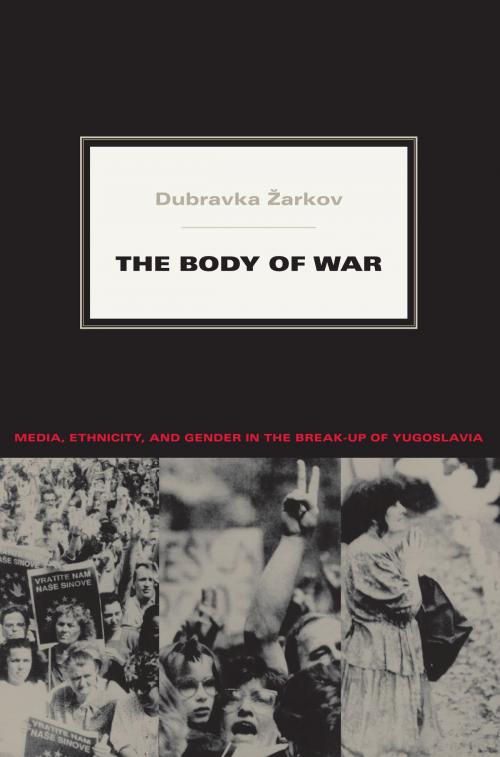The Body of War
Media, Ethnicity, and Gender in the Break-up of Yugoslavia
Nonfiction, Social & Cultural Studies, Social Science, Gender Studies, Feminism & Feminist Theory| Author: | Dubravka Žarkov, Caren Kaplan, Robyn Wiegman | ISBN: | 9780822390183 |
| Publisher: | Duke University Press | Publication: | September 3, 2007 |
| Imprint: | Duke University Press Books | Language: | English |
| Author: | Dubravka Žarkov, Caren Kaplan, Robyn Wiegman |
| ISBN: | 9780822390183 |
| Publisher: | Duke University Press |
| Publication: | September 3, 2007 |
| Imprint: | Duke University Press Books |
| Language: | English |
In The Body of War, Dubravka Žarkov analyzes representations of female and male bodies in the Croatian and Serbian press in the late 1980s and in the early 1990s, during the war in which Yugoslavia disintegrated. Žarkov proposes that the Balkan war was not a war between ethnic groups; rather, ethnicity was produced by the war itself. Žarkov explores the process through which ethnicity was generated, showing how lived and symbolic female and male bodies became central to it. She does not posit a direct causal relationship between hate speech published in the press during the mid-1980s and the acts of violence in the war. Instead, she argues that both the representational practices of the “media war” and the violent practices of the “ethnic war” depended on specific, shared notions of femininity and masculinity, norms of (hetero)sexuality, and definitions of ethnicity.
Tracing the links between the war and press representations of ethnicity, gender, and sexuality, Žarkov examines the media’s coverage of two major protests by women who explicitly identified themselves as mothers, of sexual violence against women and men during the war, and of women as militants. She draws on contemporary feminist analyses of violence to scrutinize international and local feminist writings on the war in former Yugoslavia. Demonstrating that some of the same essentialist ideas of gender and sexuality used to produce and reinforce the significance of ethnic differences during the war often have been invoked by feminists, she points out the political and theoretical drawbacks to grounding feminist strategies against violence in ideas of female victimhood.
In The Body of War, Dubravka Žarkov analyzes representations of female and male bodies in the Croatian and Serbian press in the late 1980s and in the early 1990s, during the war in which Yugoslavia disintegrated. Žarkov proposes that the Balkan war was not a war between ethnic groups; rather, ethnicity was produced by the war itself. Žarkov explores the process through which ethnicity was generated, showing how lived and symbolic female and male bodies became central to it. She does not posit a direct causal relationship between hate speech published in the press during the mid-1980s and the acts of violence in the war. Instead, she argues that both the representational practices of the “media war” and the violent practices of the “ethnic war” depended on specific, shared notions of femininity and masculinity, norms of (hetero)sexuality, and definitions of ethnicity.
Tracing the links between the war and press representations of ethnicity, gender, and sexuality, Žarkov examines the media’s coverage of two major protests by women who explicitly identified themselves as mothers, of sexual violence against women and men during the war, and of women as militants. She draws on contemporary feminist analyses of violence to scrutinize international and local feminist writings on the war in former Yugoslavia. Demonstrating that some of the same essentialist ideas of gender and sexuality used to produce and reinforce the significance of ethnic differences during the war often have been invoked by feminists, she points out the political and theoretical drawbacks to grounding feminist strategies against violence in ideas of female victimhood.















